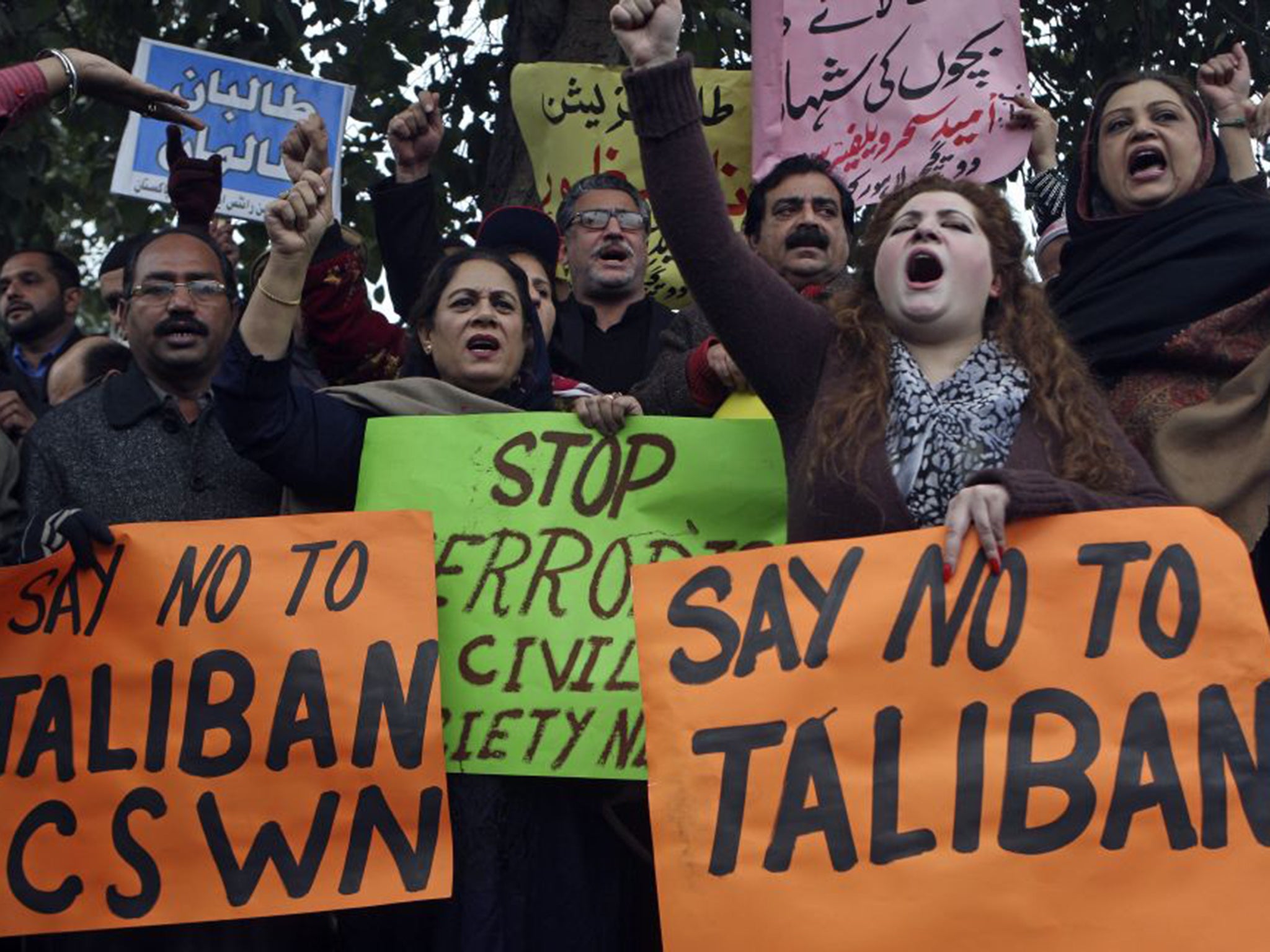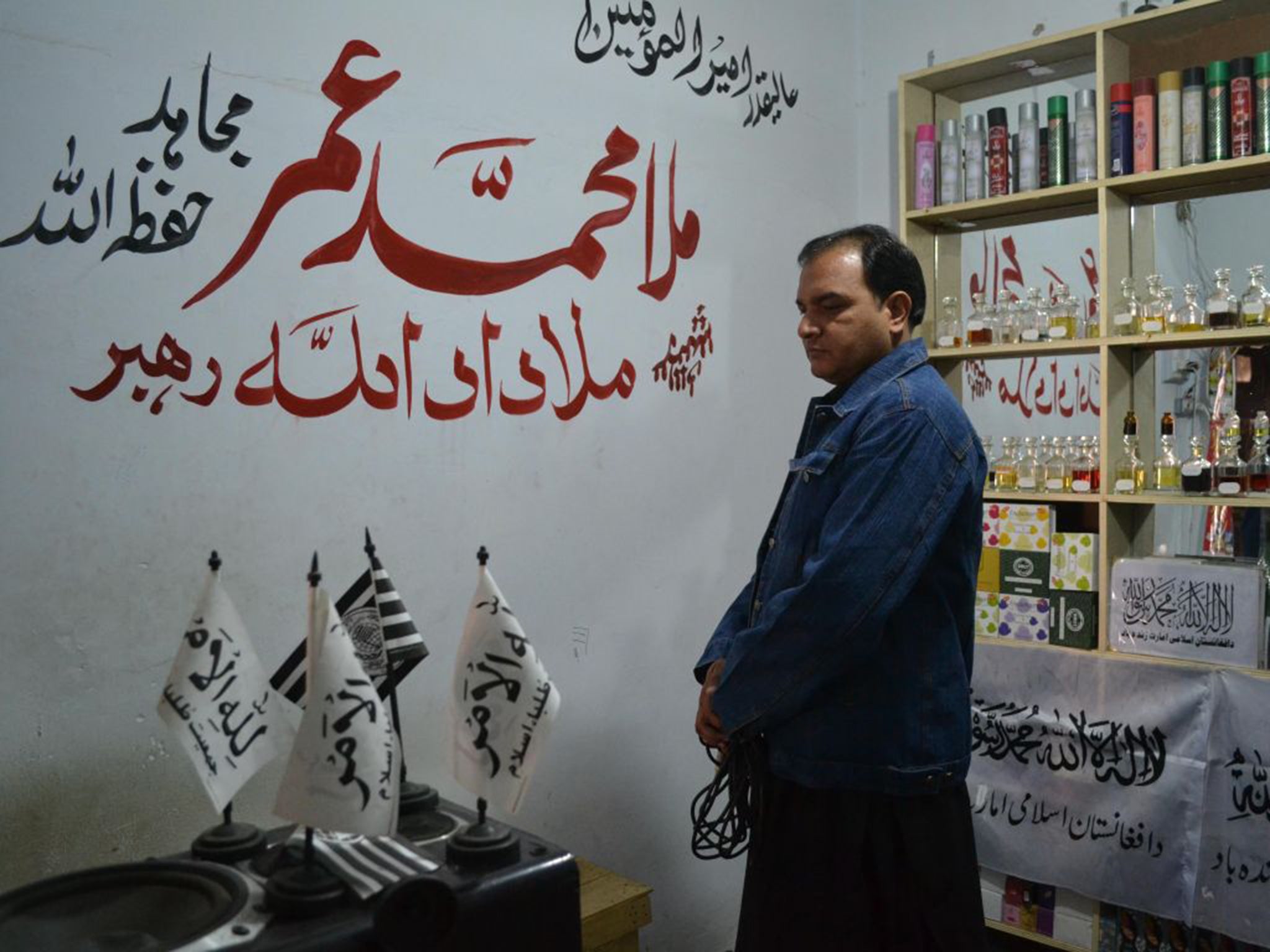Taliban turns from political violence to crime as Western forces leave Afghanistan
Diplomatic Channels

Your support helps us to tell the story
From reproductive rights to climate change to Big Tech, The Independent is on the ground when the story is developing. Whether it's investigating the financials of Elon Musk's pro-Trump PAC or producing our latest documentary, 'The A Word', which shines a light on the American women fighting for reproductive rights, we know how important it is to parse out the facts from the messaging.
At such a critical moment in US history, we need reporters on the ground. Your donation allows us to keep sending journalists to speak to both sides of the story.
The Independent is trusted by Americans across the entire political spectrum. And unlike many other quality news outlets, we choose not to lock Americans out of our reporting and analysis with paywalls. We believe quality journalism should be available to everyone, paid for by those who can afford it.
Your support makes all the difference.As expected, the end of combat operations by Western forces in Afghanistan has led to an upsurge in Taliban activity. But not all the fighters have been focusing on bringing back Mullah Omar and his Islamic state. Instead many are increasingly engaged in non-political criminality.
Afghan officials have accused insurgents of carrying out robberies, kidnappings and extortion. That the opposing side in a conflict would lay such charges is not in itself surprising. What is surprising, however, is that expressions of concern along similar lines are emanating from the Quetta Shura, the Taliban leadership based in Pakistan.
There are pluses and minuses to this. One plus is that once guerrilla groups begin to savour the lucrative profits from crime, they are less likely to risk their lives in war. We have seen this closer to home in Northern Ireland where the spread of drugs and petty crime – previously kept in check by the paramilitaries – was a boost to the peace process.
The IRA and its loyalist counterparts had long-established links with organised crime, but they did not want their recruiting pool among the young contaminated by drugs. They also declared a mission to protect their communities, thus thefts and muggings led to swift and brutal punishment. This ceased with the end of the Troubles and the statistics for crime subsequently rose to match that of the rest of the United Kingdom – and some would-be bombers became drug dealers.
As the Taliban began to set up shadow administrations in areas outside the control of the Kabul government, sending in judges and administrators, they started receiving complaints from residents in many areas that they were being preyed on by rapacious gunmen.
Following investigations, the insurgent leadership in Pakistan discovered that this was being carried out by their own members. There was further consternation when, in a number of cases in northern Helmand, Paktia and Kunar, local commanders simply rebuffed orders from Quetta to punish those responsible. These commanders also continued to allow, it is claimed, local businessmen and landlords to engaging in “un-Islamic practices” in return for bribes.
One reason for the defiance is the churn experienced in the insurgent ranks in the war, especially during the period the US-led international forces began carrying out their campaign of “decapitation” – taking out senior and mid-level cadres. A younger band which rose to take their places has less loyalty to the exiled Mullah Omar and his Taliban coterie driven out 13 years ago. Some of these new leaders have different ideas to the leadership about the future of the movement.
Any fraying of control by the Quetta Shura over their foot soldiers means that the influence of elements of the Pakistani military and secret police, ISI, over the Taliban will also loosen. This is a big minus factor for the new Afghan President, Ashraf Ghani, who has invested a lot in seeking the help of the Pakistani military to rein-in the insurgency, to the extent of breaking international protocol by meeting the head of the army, General Raheel Sharif, rather than Prime Minister Nawaz Sharif first during a visit to the country.
On the ground, however, the violence is lessening in some areas with the security forces turning a blind eye to the insurgents’ protection rackets, abductions and banditry in return for not being attacked. The security forces, like many others in the public sector, are increasingly demoralised by the seemingly rudderless coalition government of Ghani and Abdullah Abdullah which had failed to appoint key ministers months after coming to power amid mutual bickering over the candidates.

The morale of the police has been further sapped by the chaotic nature of Ghani’s much trumpeted anti-corruption and efficiency drive. In a recent visit to Herat in the west, the President decided to sack officials, including all the 15 district police chiefs, after complaints about their performance. He then left the area, which is suffering from serious lawlessness, without doing anything to replace them.
“It’s terrible. We have business owners being kidnapped and mullahs assassinated,” said Hajji Shahid Zada, an MP from the region, who had accompanied Ghani. “Maybe some of the officials he dismissed were corrupt, but we never thought he would sweep out all of them and not bring in anyone new. It was unjust.”
Mir Ghousuddin, an elder representing 52 villages in the northern province of Kunduz, described a fairly typical arrangement. “The Taliban take 10 per cent from agriculture and other businesses, like a tax. They are robbers, but the government is so weak they can’t help. The police don’t fight the Taliban, they have given up, they help them. Also, the Taliban are now much better armed, because they took guns from the police.”
Afghanistan’s well-established channels of corruption, meanwhile, have been useful in this modus vivendi. Upon being released from prison in Oruzgan, Fauji, a Taliban commander, kidnapped the son of a local mayor and demanded ransom for his release.
The sum stipulated was very precise, the equivalent of $17,800 (£11,700). It was the amount he said he had paid in bribes to officials to be freed.
“Fauji telephoned me and said he since had paid out 1.8 million Pakistani rupees, that’s what he wanted from me,” said the mayor, Abdul Rahman. “He said he wasn’t going to make a profit on this, he was just covering his costs.”
Join our commenting forum
Join thought-provoking conversations, follow other Independent readers and see their replies
Comments